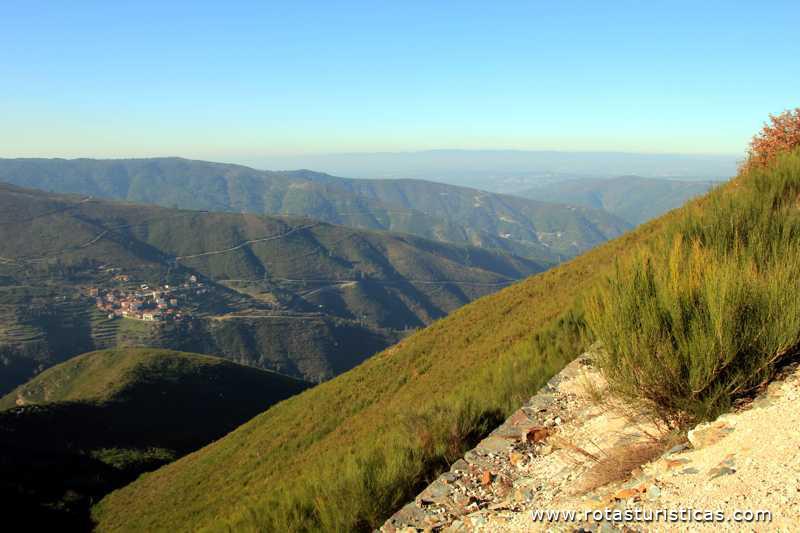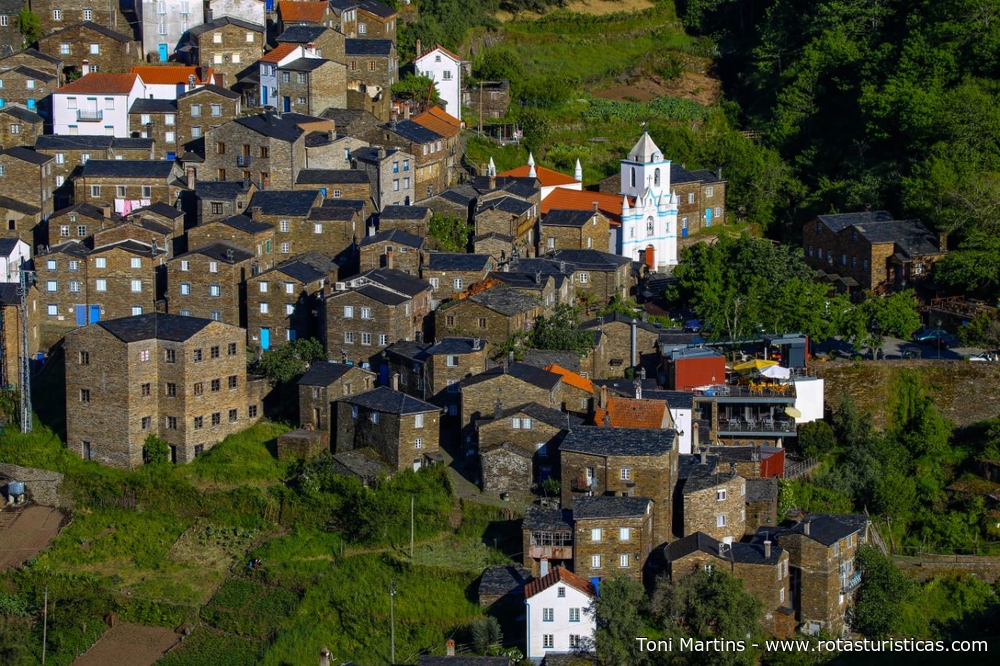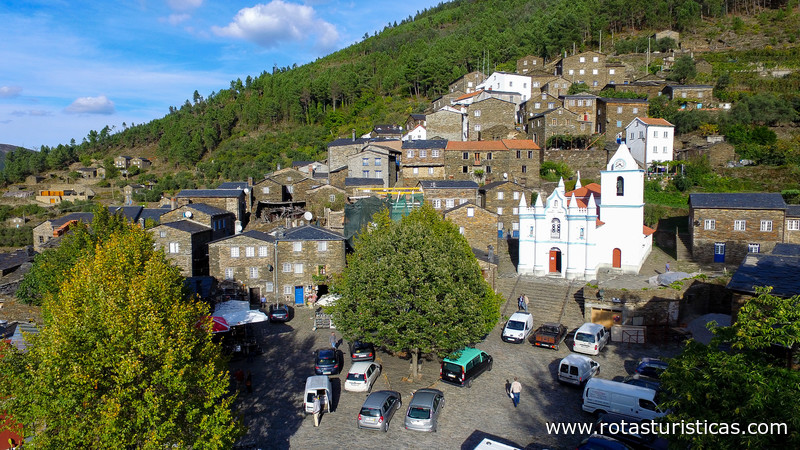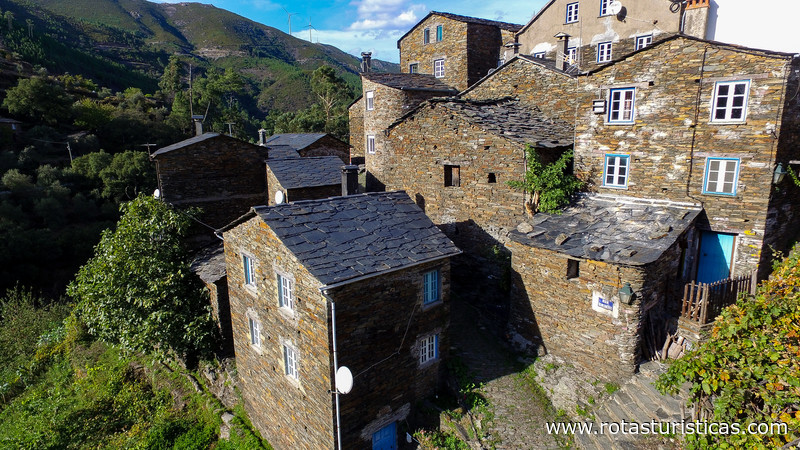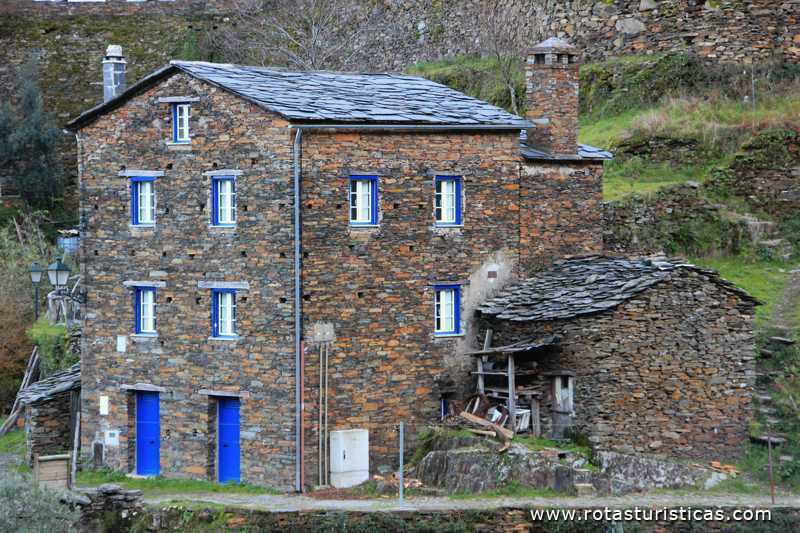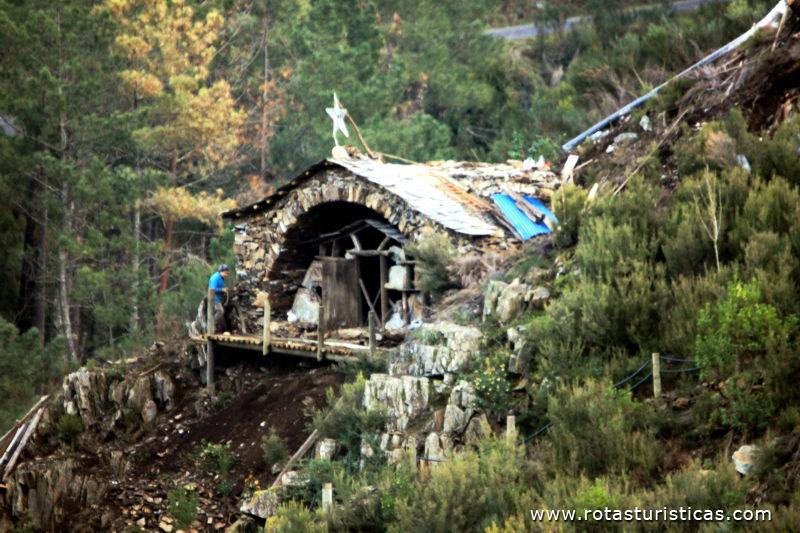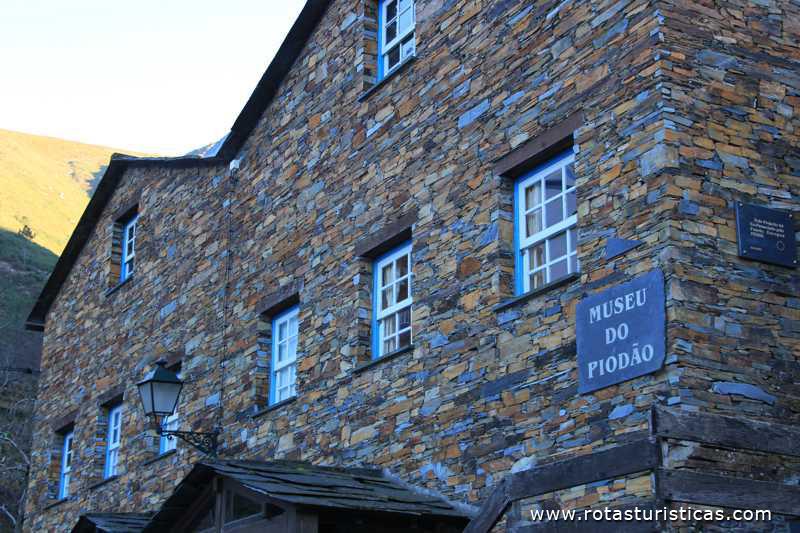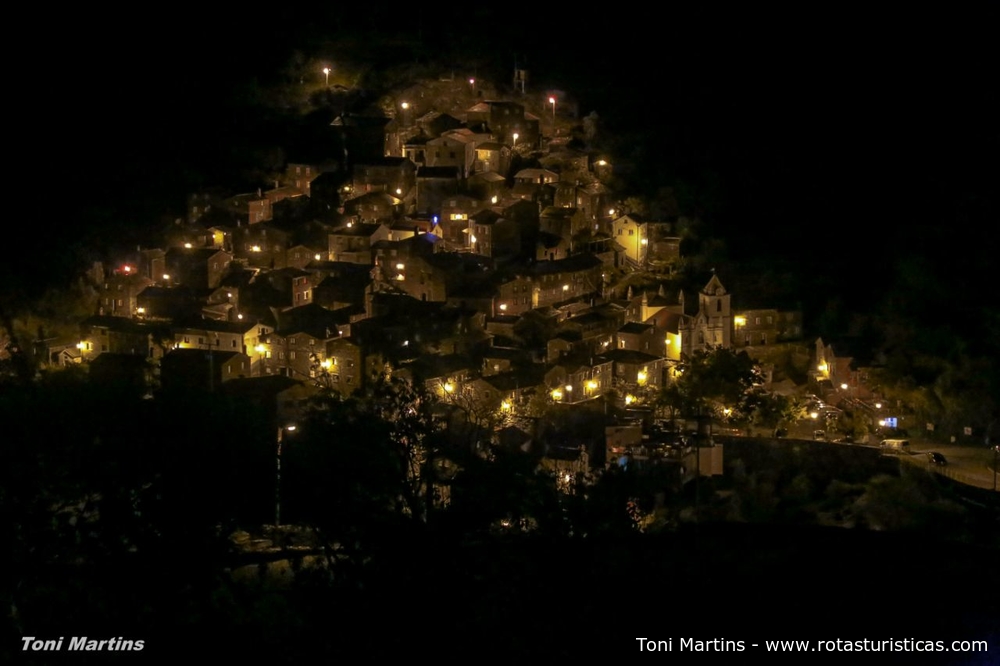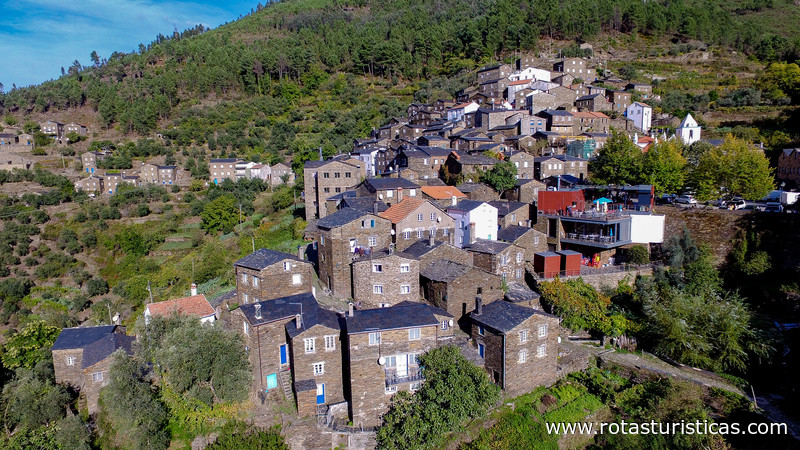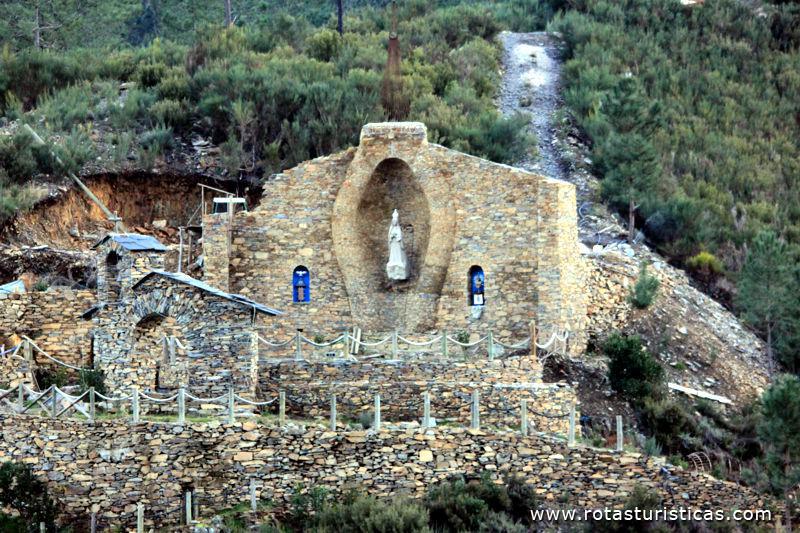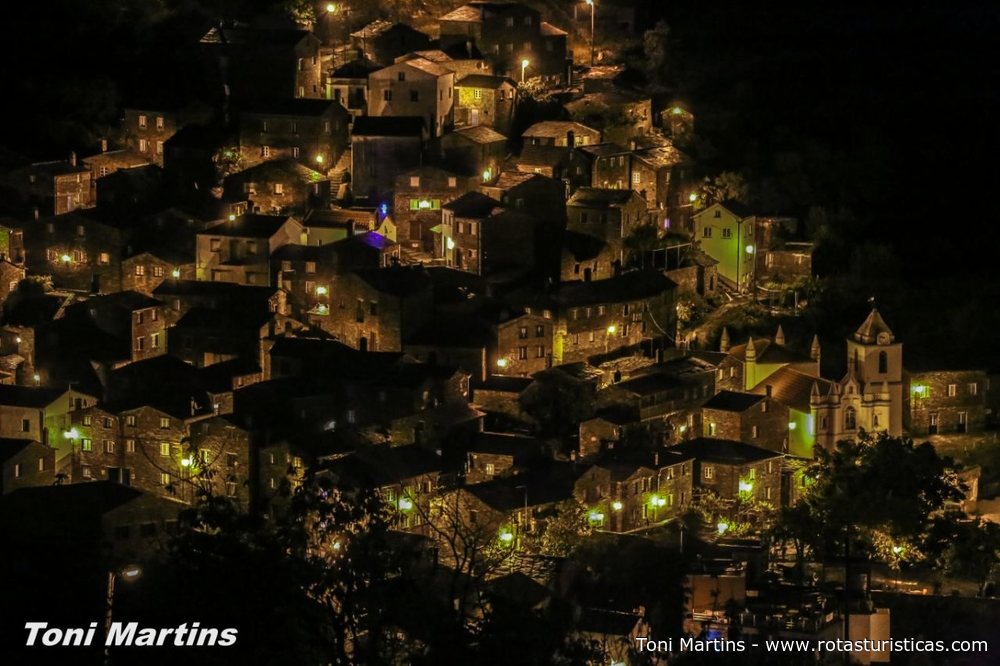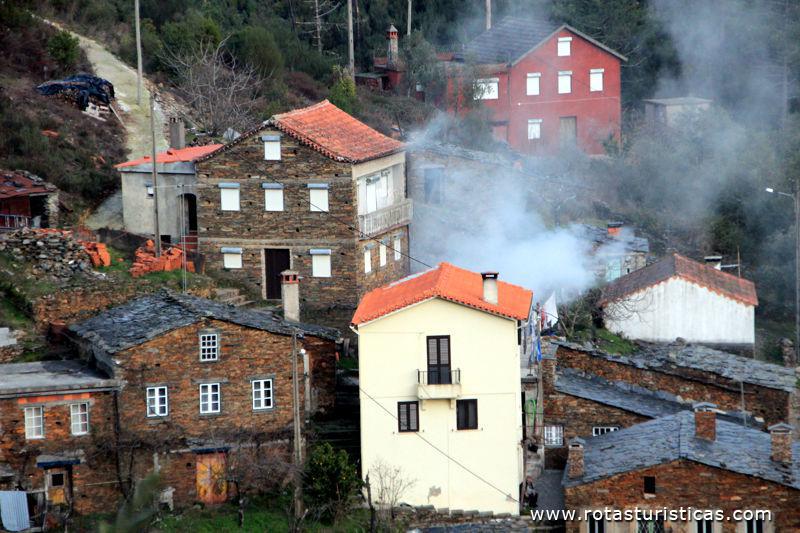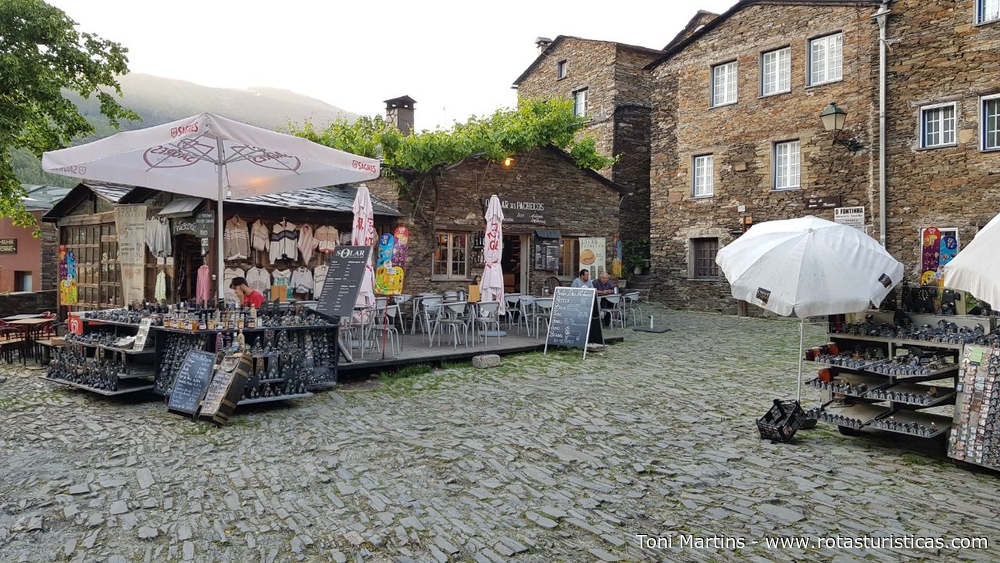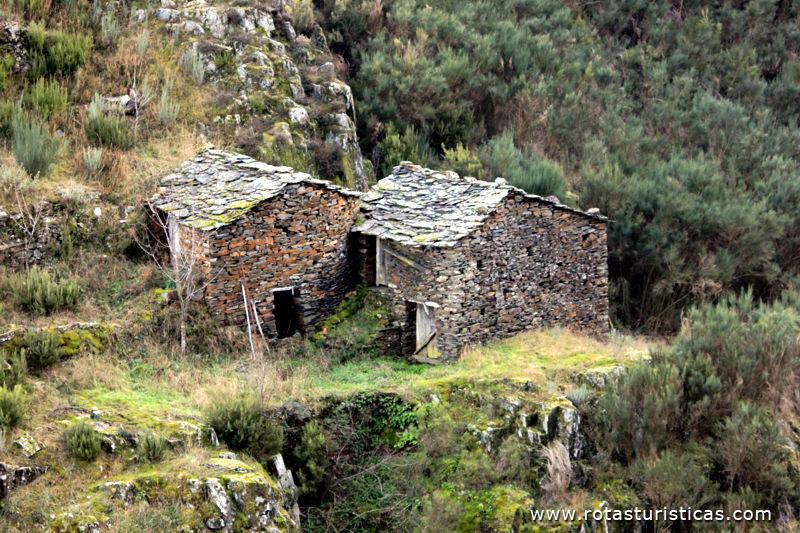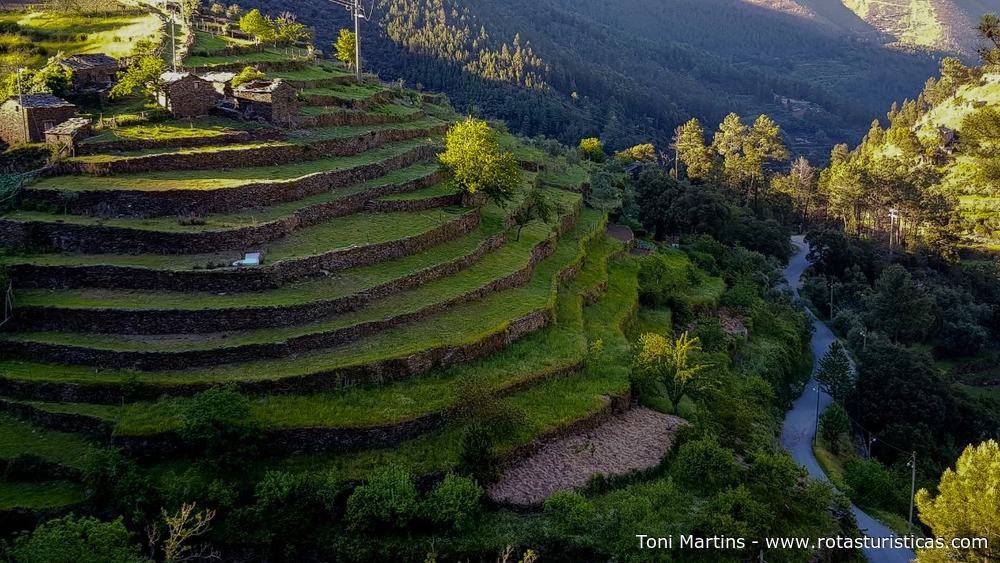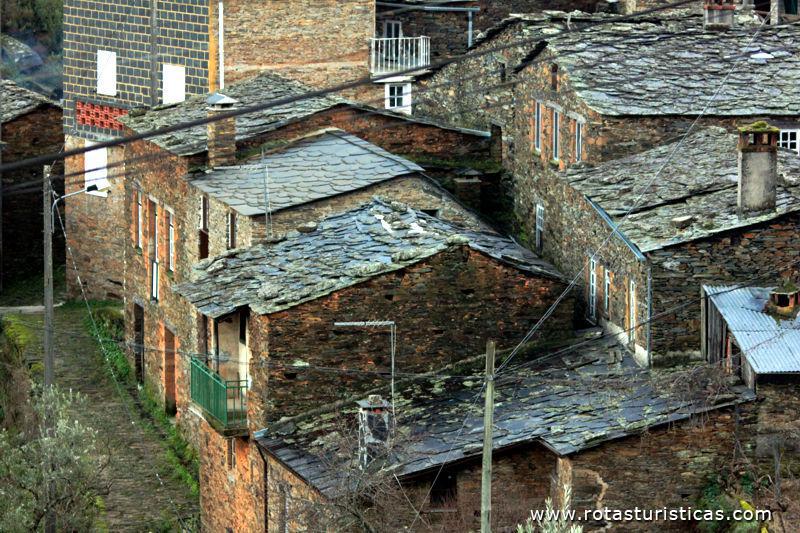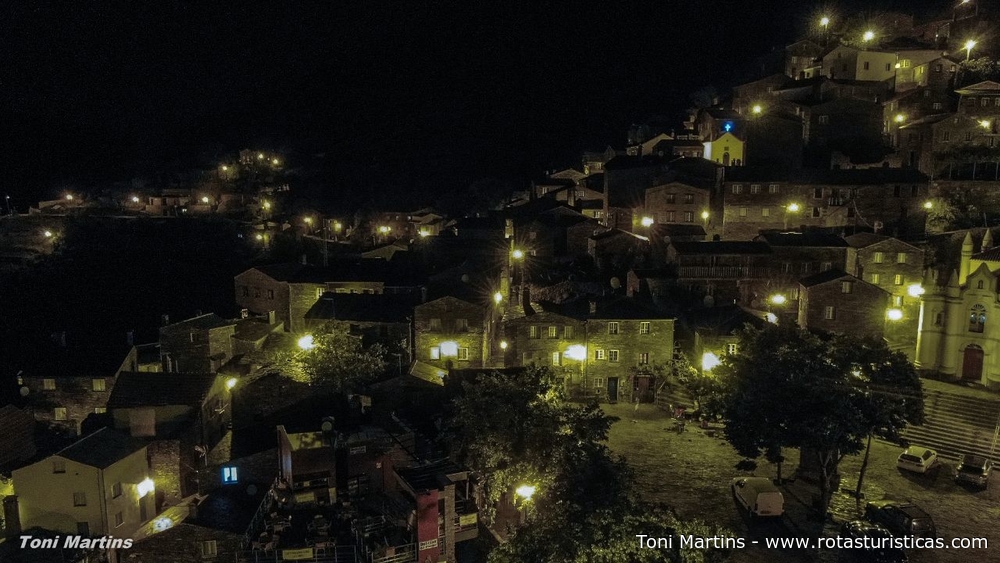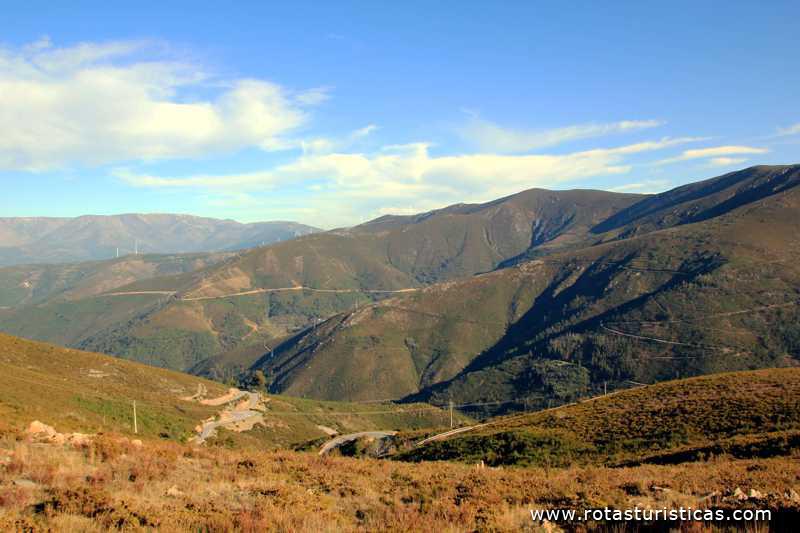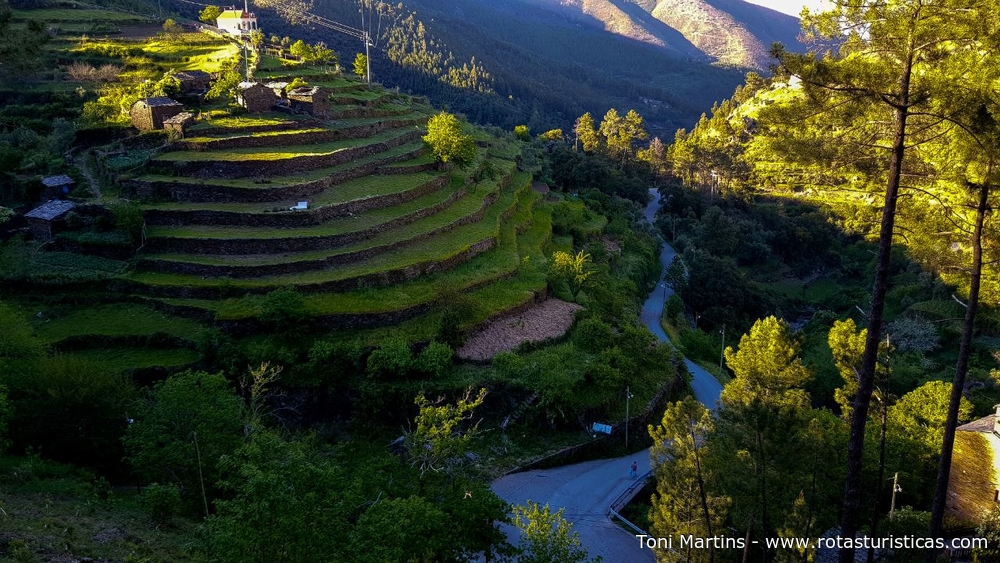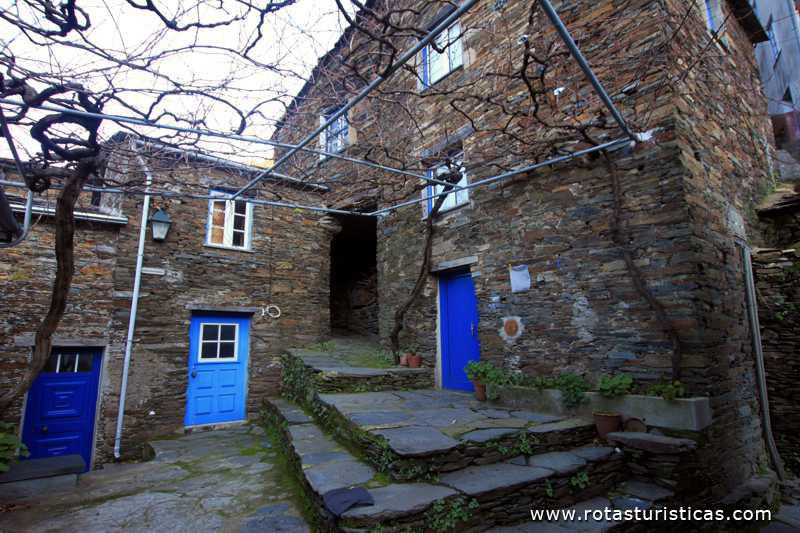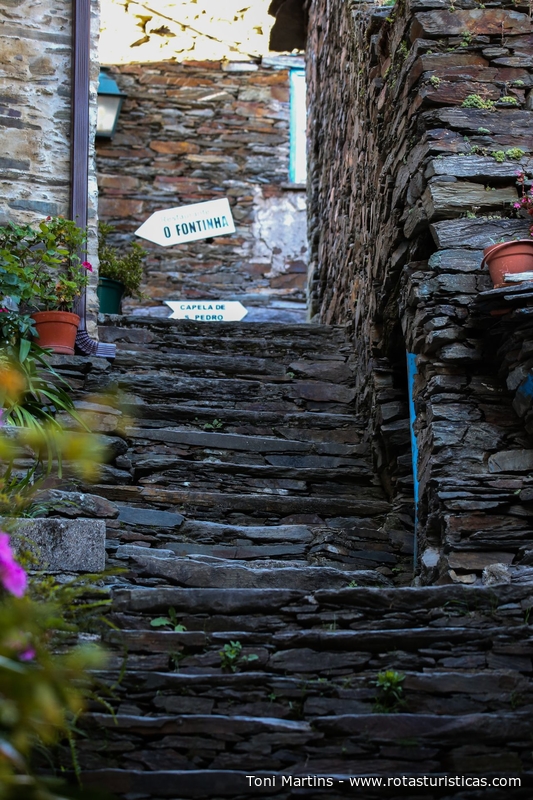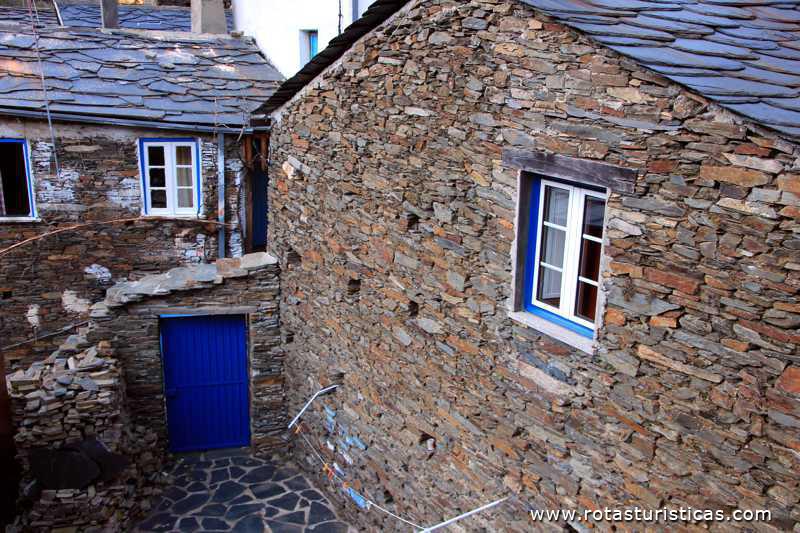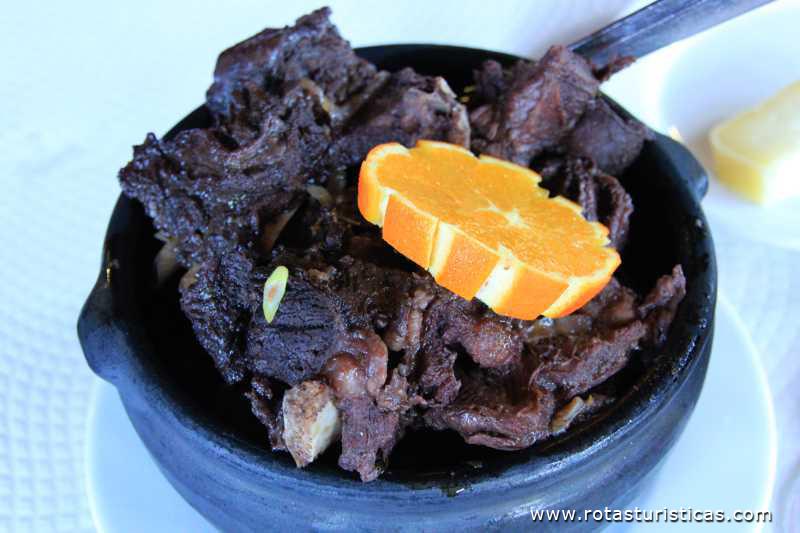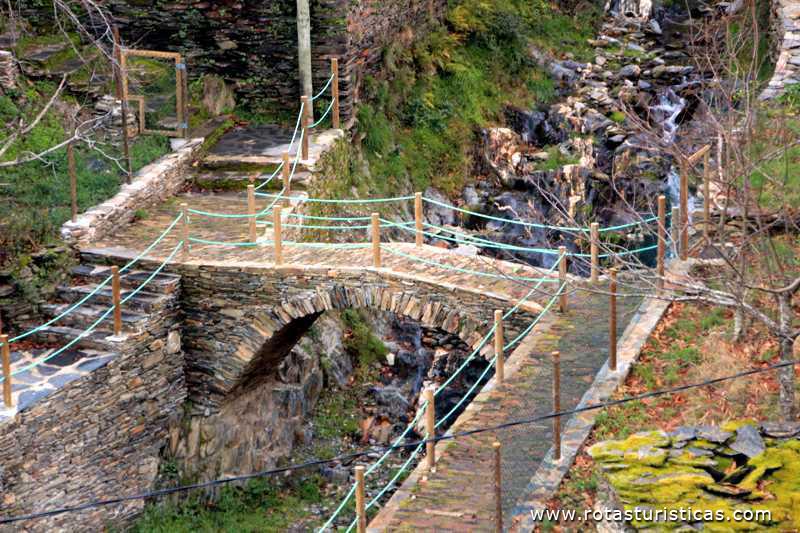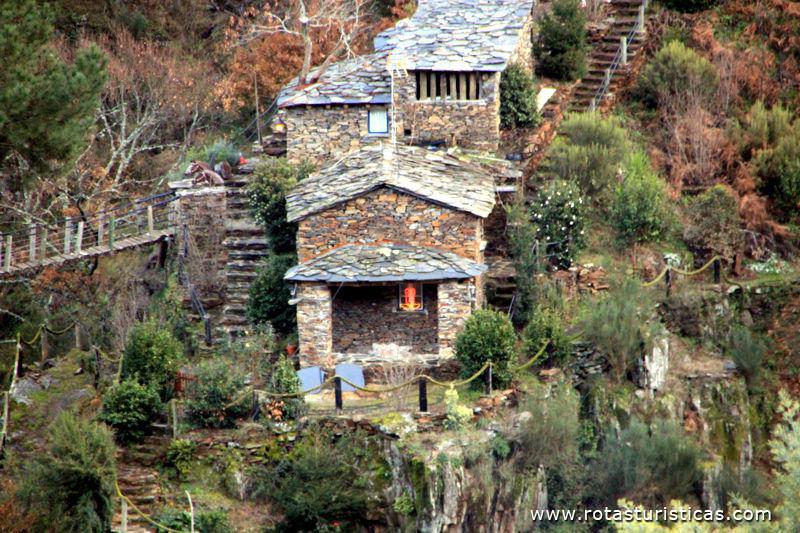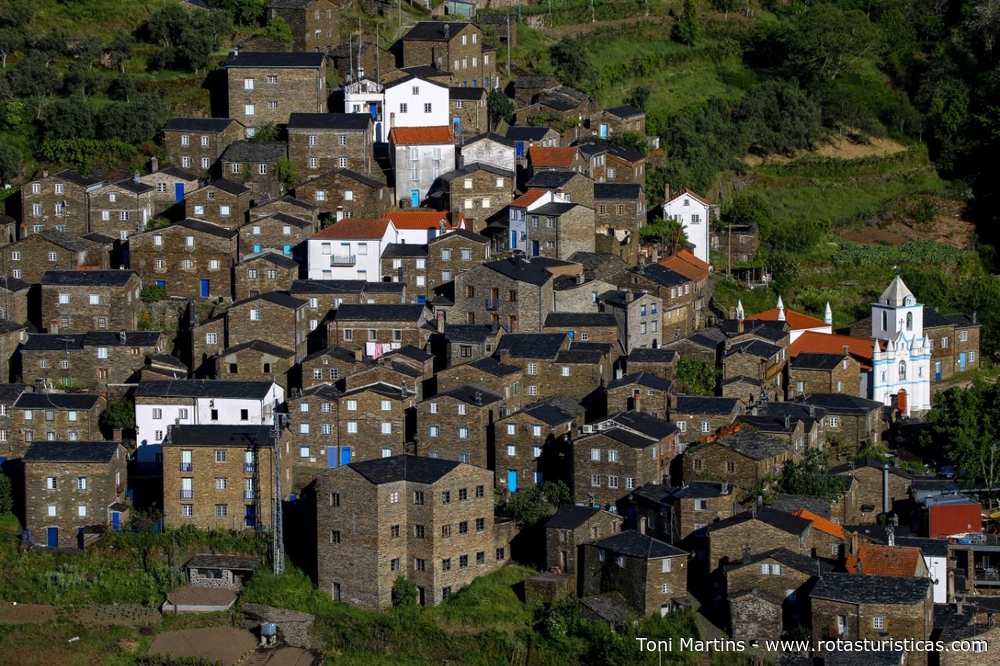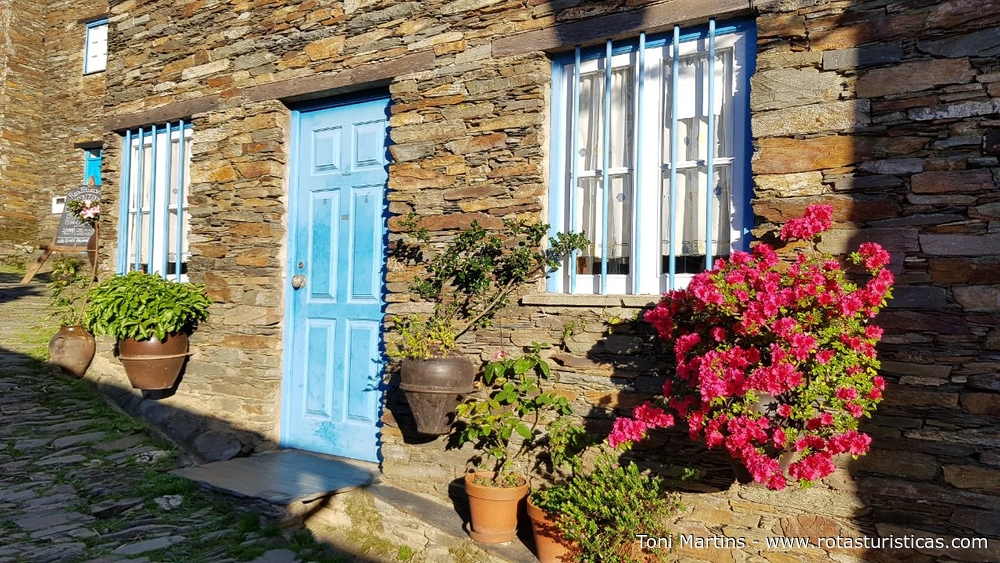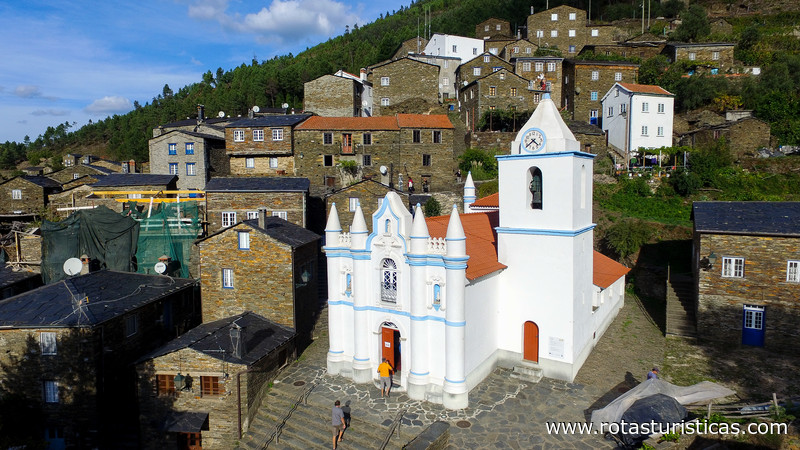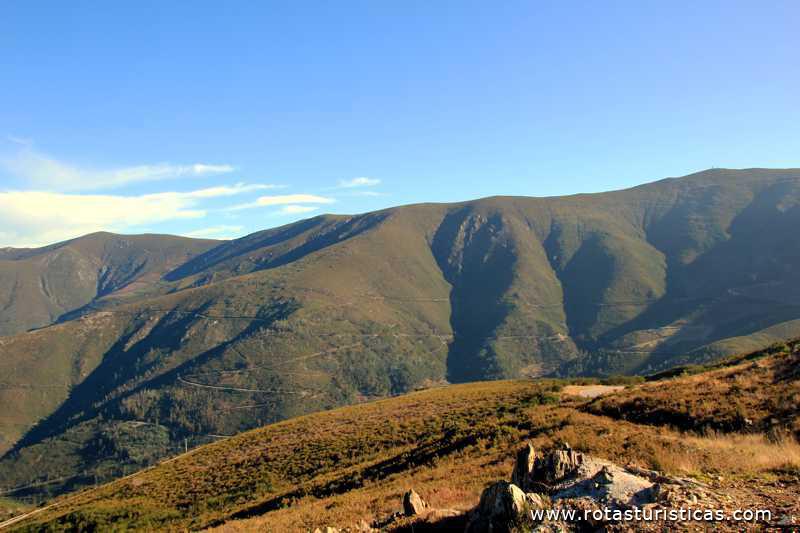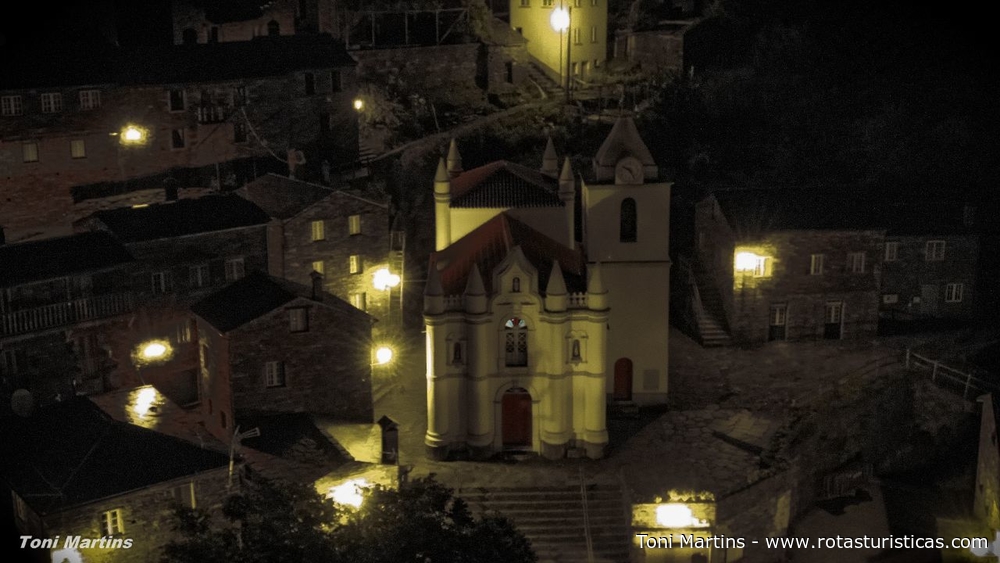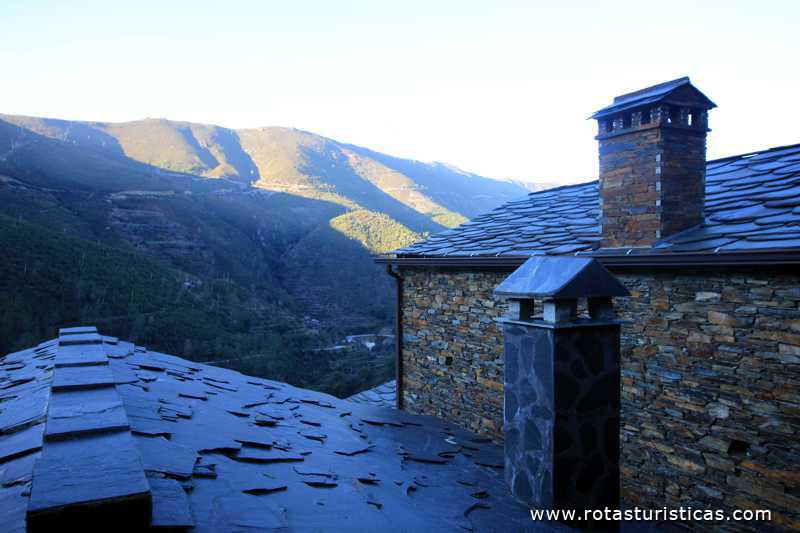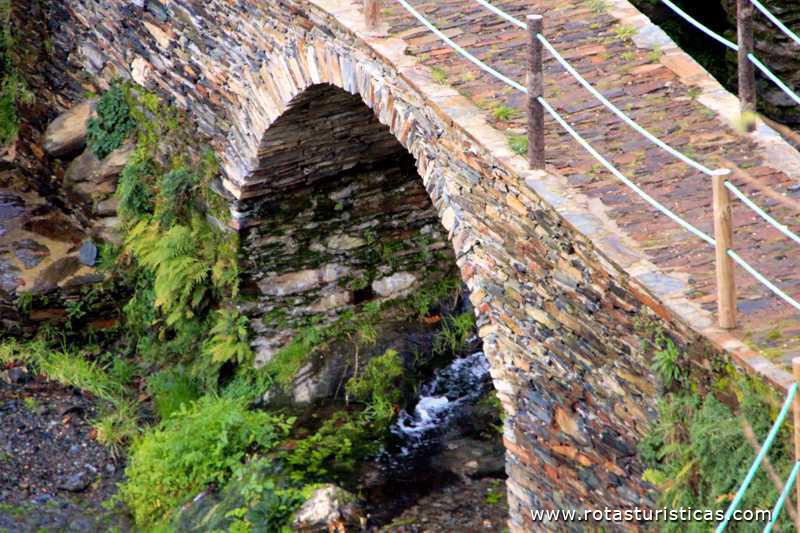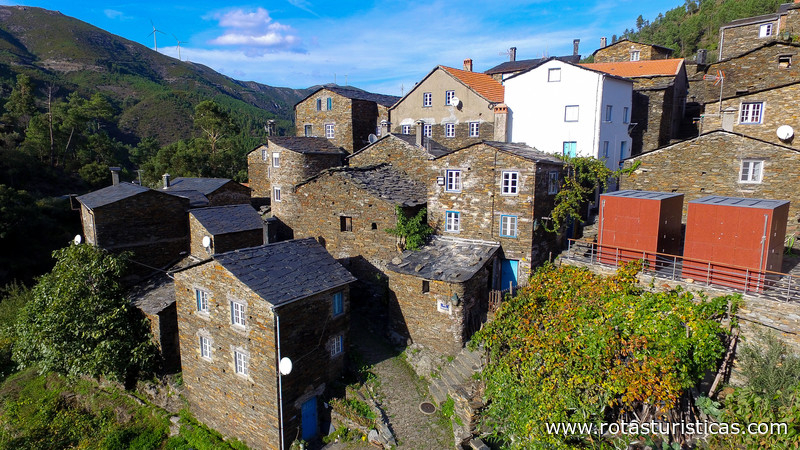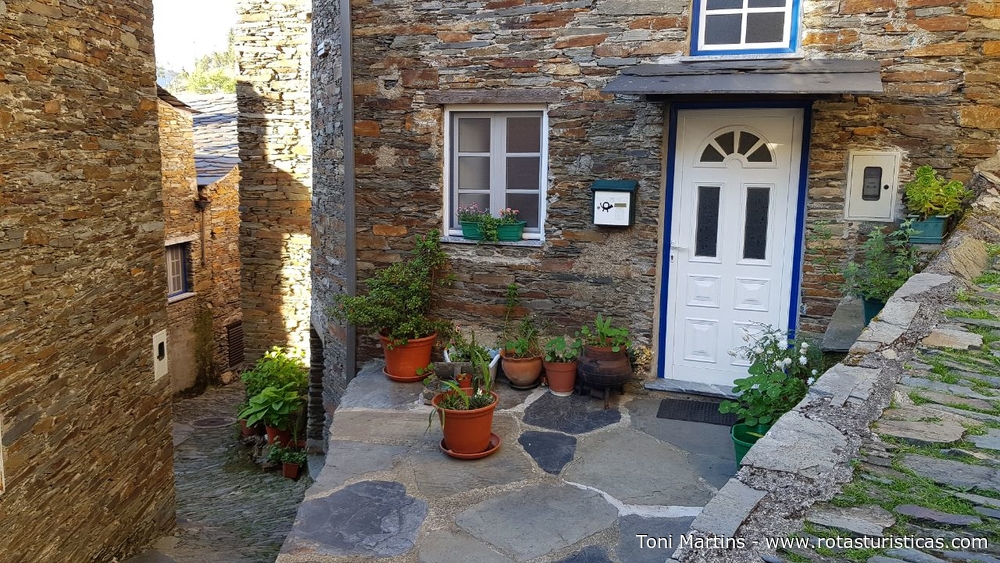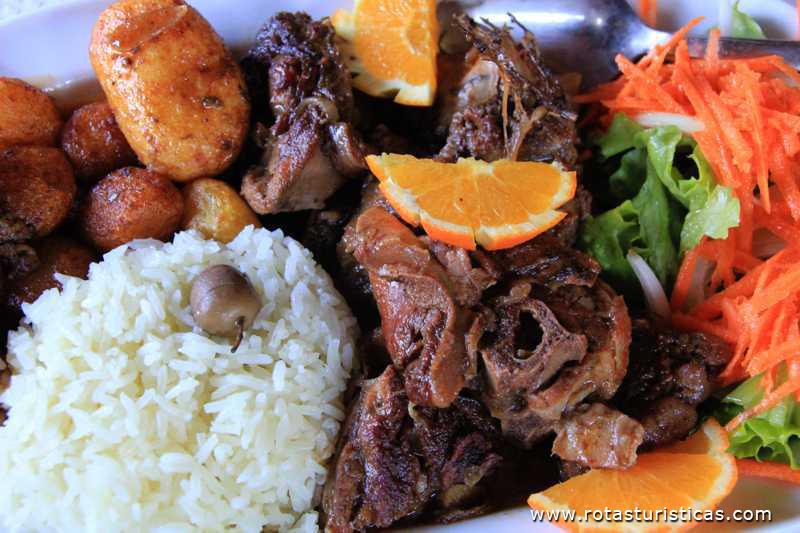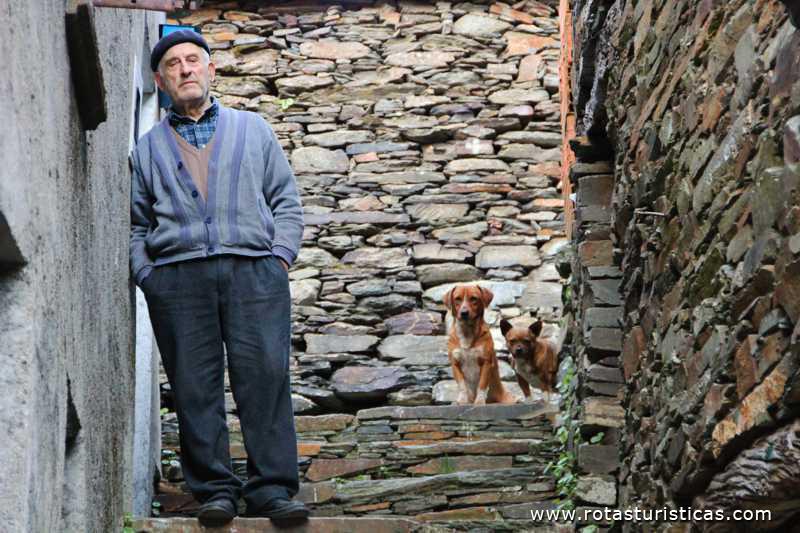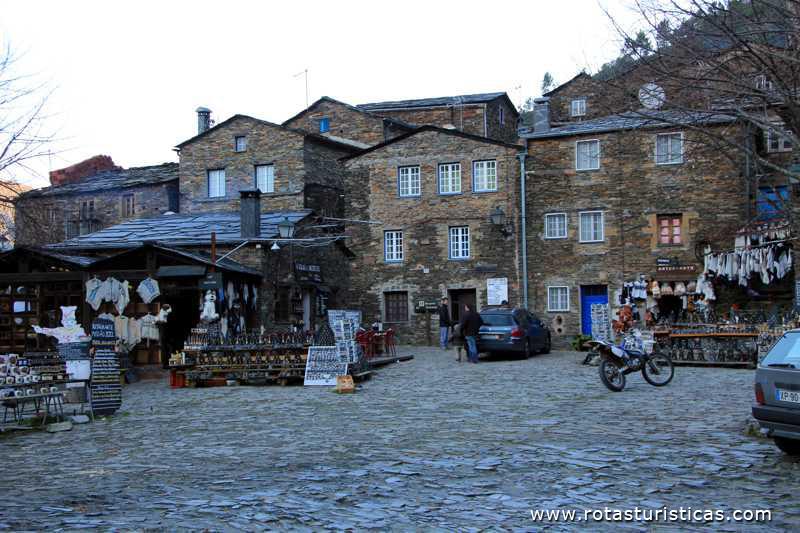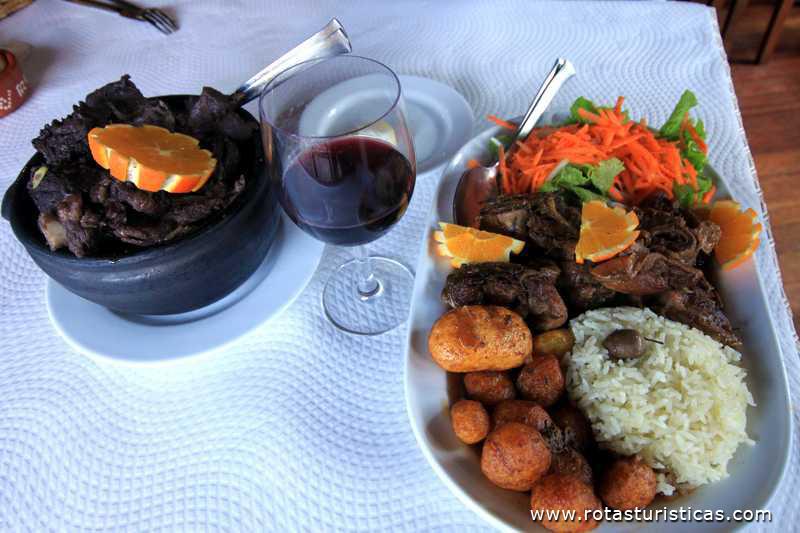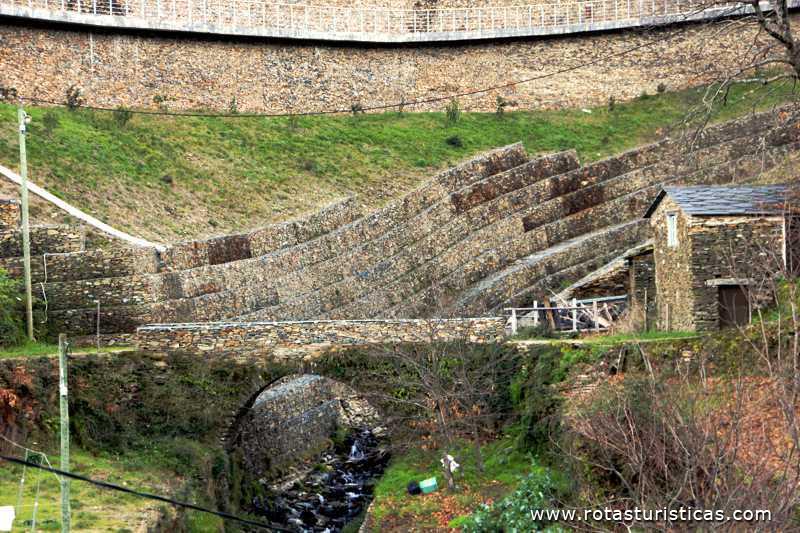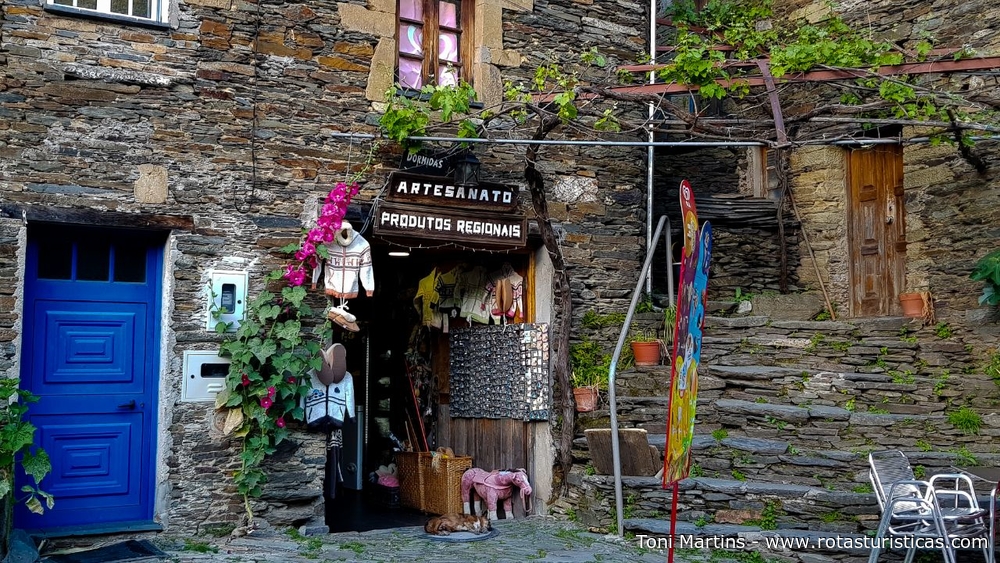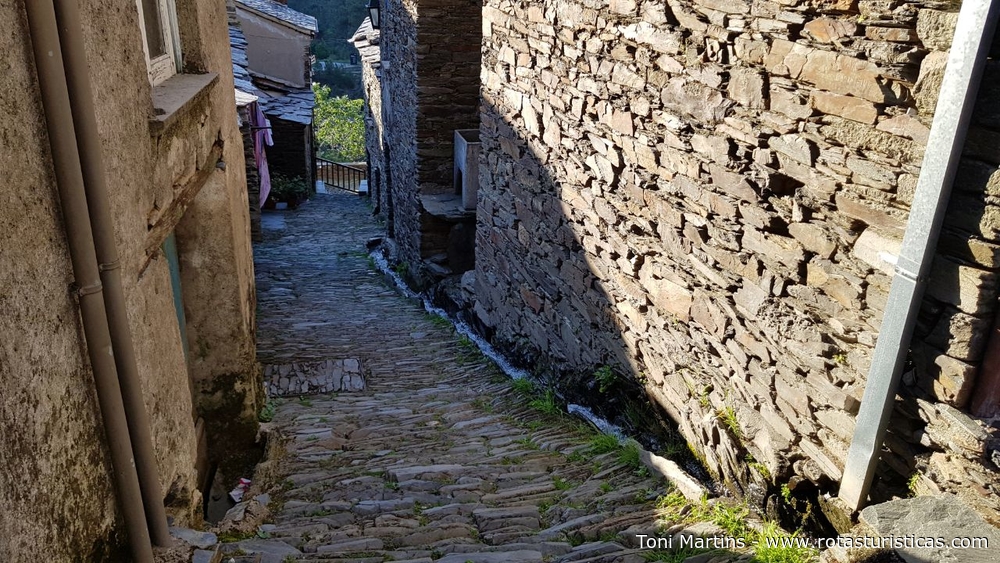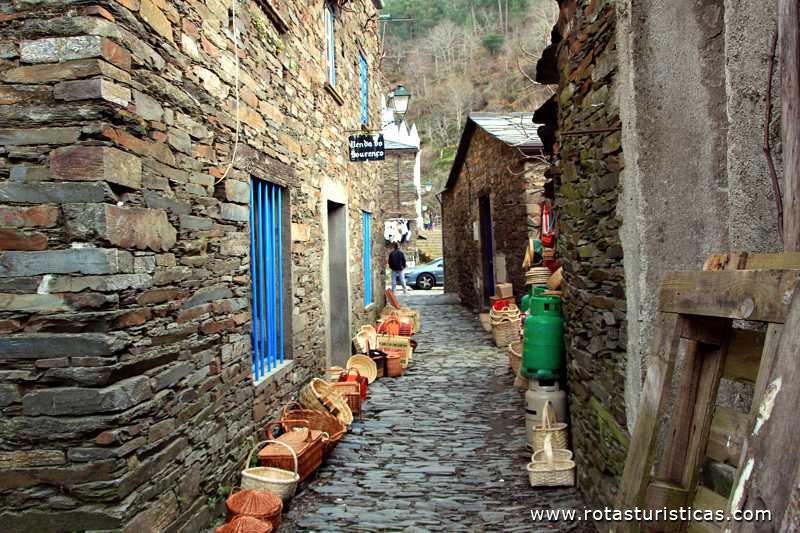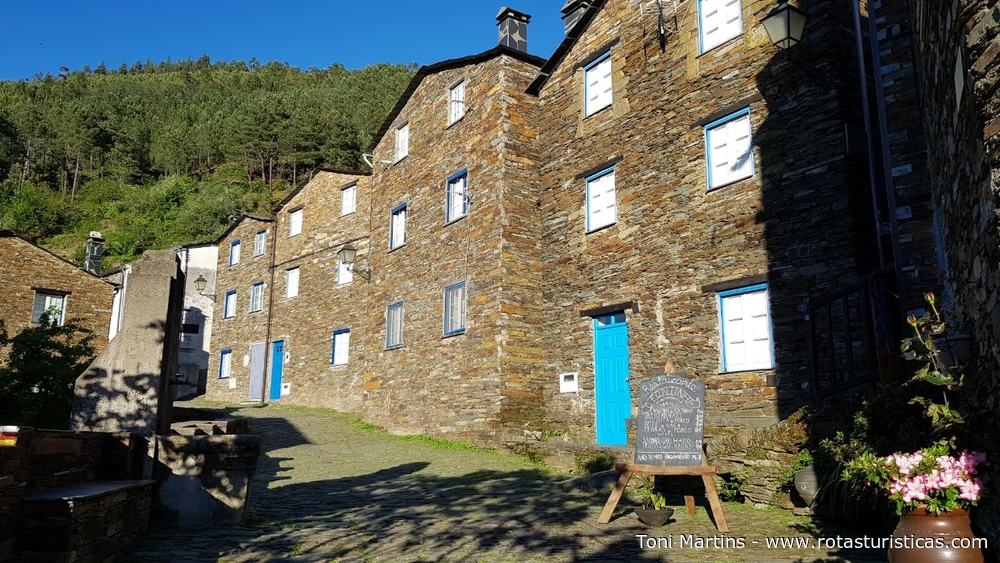Pictures of: Piódão
Location map
Airports
Hotels and other Accommodation
What to visit
Where to Eat
World Nomads
The Travel Insurance with the largest coverage

The Travel Insurance with the largest coverage

Piódão
Piódão is a Portuguese parish of the county of Arganil, with 36.57 km ² of area. The parish includes the following villages and farms: Piódão, Malhada Chã, Chãs d'Égua, Tojo, Fórnea, Foz d`Egua, Barreiros, Covita, Torno, Casal Cimeiro and Casal Fundeiro.
The village of Piódão, is located on a slope of the Serra do Açor. The houses have the traditional schist walls, covered roof with slabs and doors and wooden windows painted blue. The aspect that the artificial light gives him, during the night, conjugated by the disposition of the houses, made that he received the denomination of "Nativity Presépio". The inhabitants are mainly engaged in agriculture (corn, potatoes, beans, vines), cattle raising (sheep and goats) and in some cases beekeeping.
The flora is largely made up of chestnut trees, olive trees, pines, heather and giestas. The fauna consists mainly of rabbits, hares, wild boars, foxes, weasels, weasels, eagles, goshawks, crows, jays, partridges and small rodents.
Currently, the desertification of the interior zones affects practically all the villages of this parish. Younger populations emigrated abroad or in the coastal areas in search of better living conditions, returning to their origins, especially during festive seasons to revive the past and meet their peers.
The village of Piódão, is located on a slope of the Serra do Açor. The houses have the traditional schist walls, covered roof with slabs and doors and wooden windows painted blue. The aspect that the artificial light gives him, during the night, conjugated by the disposition of the houses, made that he received the denomination of "Nativity Presépio". The inhabitants are mainly engaged in agriculture (corn, potatoes, beans, vines), cattle raising (sheep and goats) and in some cases beekeeping.
The flora is largely made up of chestnut trees, olive trees, pines, heather and giestas. The fauna consists mainly of rabbits, hares, wild boars, foxes, weasels, weasels, eagles, goshawks, crows, jays, partridges and small rodents.
Currently, the desertification of the interior zones affects practically all the villages of this parish. Younger populations emigrated abroad or in the coastal areas in search of better living conditions, returning to their origins, especially during festive seasons to revive the past and meet their peers.
Tourism
Its stone houses descend from socalco terraced to the taste of the mountain, offering itself to the incredulous look of who thinks to have found an enchanted settlement in the Serra do Açor. Thus we came to Piódão, one of the ten Historical Villages of Portugal, which survived the rigors of many winters and summers of Beira to remind us of a country almost forgotten.
Piódão, at dusk, looks like a crib - a name for which it is also known - or a village from the tales of Hans Christian Andersen. It descends cascading down a slope of the Serra do Açor and leaves, even in the gloom, a harmony in its urban fabric of envying PDMs, both complex and useless. Light from the small windows, without revealing the charm of the houses that we know to be built in shale, from the narrow narrow streets on the same stone, of the old people dressed in black ... And the silence, even more closed than the night, only revives the mystery of so magical apparition, that the return of the early morning will unravel, but not disappoint.
Whatever the time of year, whatever path one takes (it is said that all will go to the Piódão, like Rome, given the profusion of roads that lead to the parish headquarters of Arganil), nature does not stop to surprise with its improbable colors, in a world dressed in concrete ash. The snow white and the transparency of the waterfalls that flow from the steep terraces of the mountains in the winter give way to the lilac of the heather and the yellow of the giescas and the carquejas. In the summer, the red-cherry-colored cherry trees are impressive, and the next season the arboreal strawberries are the same color, while the chestnut trees prefer the tones of honey at the time.
The village of Piódão, classified as Property of Public Interest since 1978 and integrated in the Program of Recovery of Historic Villages of Portugal.
Piódão, at dusk, looks like a crib - a name for which it is also known - or a village from the tales of Hans Christian Andersen. It descends cascading down a slope of the Serra do Açor and leaves, even in the gloom, a harmony in its urban fabric of envying PDMs, both complex and useless. Light from the small windows, without revealing the charm of the houses that we know to be built in shale, from the narrow narrow streets on the same stone, of the old people dressed in black ... And the silence, even more closed than the night, only revives the mystery of so magical apparition, that the return of the early morning will unravel, but not disappoint.
Whatever the time of year, whatever path one takes (it is said that all will go to the Piódão, like Rome, given the profusion of roads that lead to the parish headquarters of Arganil), nature does not stop to surprise with its improbable colors, in a world dressed in concrete ash. The snow white and the transparency of the waterfalls that flow from the steep terraces of the mountains in the winter give way to the lilac of the heather and the yellow of the giescas and the carquejas. In the summer, the red-cherry-colored cherry trees are impressive, and the next season the arboreal strawberries are the same color, while the chestnut trees prefer the tones of honey at the time.
The village of Piódão, classified as Property of Public Interest since 1978 and integrated in the Program of Recovery of Historic Villages of Portugal.
Gastronomy
The tarmac roads brought the tourists and took the people, the younger ones. The elders are growing the land, producing wine that heats them on long winter nights, brown for the typical pounded chestnut soup and several cereals. The abundant valley of water is fertile land. Also characteristic is the aguardente of arbutus, as well as the one of honey.
Weather
In Piódão, the climate is hot and temperate. In Piódão there is much more rainfall in the winter than in the summer. The average annual temperature in Piódão is 12.4 ° C. It has an annual average rainfall of 1292 mm.
Other tourist destinations in:
Portugal
Portugal
Other world tourist destinations
Why to book with FIND HOTEL ONLINE
The best prices
Our partnerships with the world´s largest operators offer research on the best market prices.
More options
At Rotas Turisticos you can book the hotel, buy the air ticket, book the transfer from the airport to the hotel and vice versa, book the local excursions, rent the car, take travel insurance and consult the places to visit and where to go.
Holiday Tips & Destinations
Hundreds of holiday destinations with all the options that allow you to easily choose the destination that best suits your dream vacation.
FIND HOTEL ONLINE
Links

